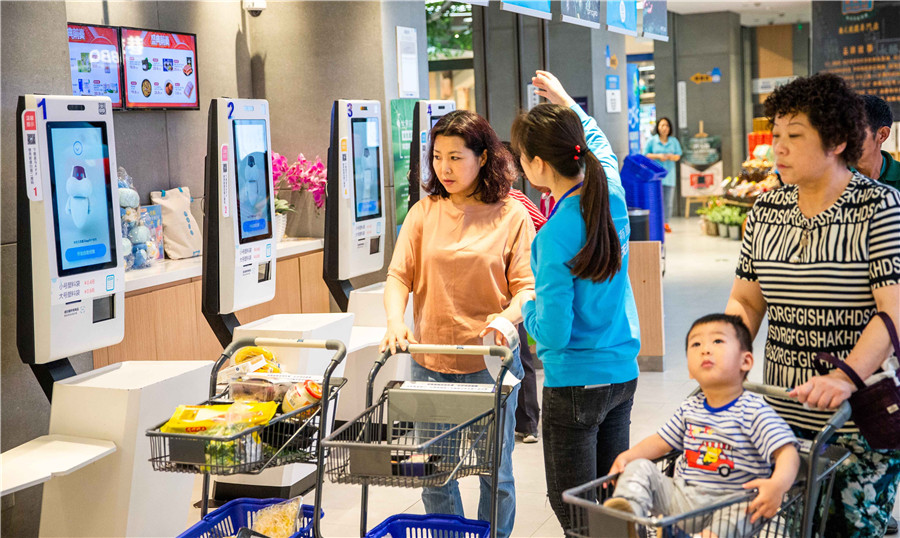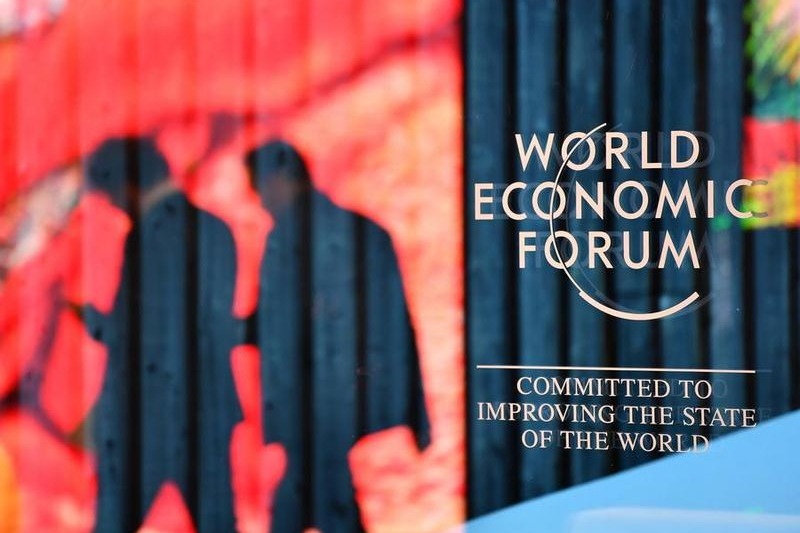Retail sales point to growing consumption power
By Ouyang Shijia | China Daily | Updated: 2019-07-16 08:56

Retail sales of consumer goods in China grew to 19.5 trillion yuan ($2.83 trillion) in the first half of this year, a positive sign showing the country's increasing consumption power despite headwinds, official data showed on Monday.
The increase of 8.4 percent year-on-year in retail sales is good news in the face of "a complex economic situation with increasing external uncertainties and new downward pressure", according to the National Bureau of Statistics.
The figures from the NBS revealed that online sales occupied nearly 25 percent of overall retail sales and totaled 4.8 trillion yuan in the first six months.
Online sales increased 17.8 percent year-on-year, 2.5 percentage points faster than the first quarter.
Mao Shengyong, spokesperson for the NBS, noted that e-commerce is a major driver of China's retail economy.
"China's retail sales of consumer goods surged 9.8 percent year-on-year in June, especially driven by the rapid growing online sales and this year's June 18 retail festival," Mao said at a news briefing held on Monday in Beijing. "And we've witnessed fast growth in online sales of cosmetics and home appliances."
Chinese major e-commerce platforms continued to break records in online sales during this year's June 18 shopping festival from June 1 to 18, which is the second-largest after Singles Day on Nov 11.
JD reported sales for the 18-day festival period hit a staggering 201.5 billion yuan, compared with 159.2 billion yuan in 2018.
Alibaba also reported strong sales for the annual shopping event, with more than 110 brands on its Tmall platform reporting a turnover of over 100 million yuan.
"China's e-commerce sector has posted remarkable achievements as it drives global development," said Jennifer Ye, PwC China consumer markets leader. "Chinese internet giants are leveraging their own capital and technological advantages to create retail ecosystems, while consolidating offline spaces and upstream and downstream industries to maximize their competitive edges."
PwC estimated in a recent report that China's overall retail market will hit $6.77 trillion in 2019, of which e-commerce retail sales will reach $1.25 trillion, up 9 percent and 21 percent year-on-year respectively.
According to the report, while Chinese consumers are willing to embrace changes, they are also constantly changing and becoming more discerning.
In particular, consumers born in the 1980s and 1990s will prefer entertaining and practical shopping experiences, instead of simply combining the in-store experience with a digital app.
In 2018, 52 percent of Chinese consumers spent more on experiences, such as travel, dining out and activities, than the previous year, compared with 26 percent in the United States, the report noted.
Statistics from Alibaba's restaurant review and lifestyle services platform Koubei showed that diverse demand is growing and the nighttime economy is blossoming across the nation.
According to the Koubei data, consumption that satisfies solo consumers is rising in the nighttime hours, including spas, manicures, yoga and reading. And more parents are spending money on parent-child services during nighttime hours, such as parent-child swimming.
























